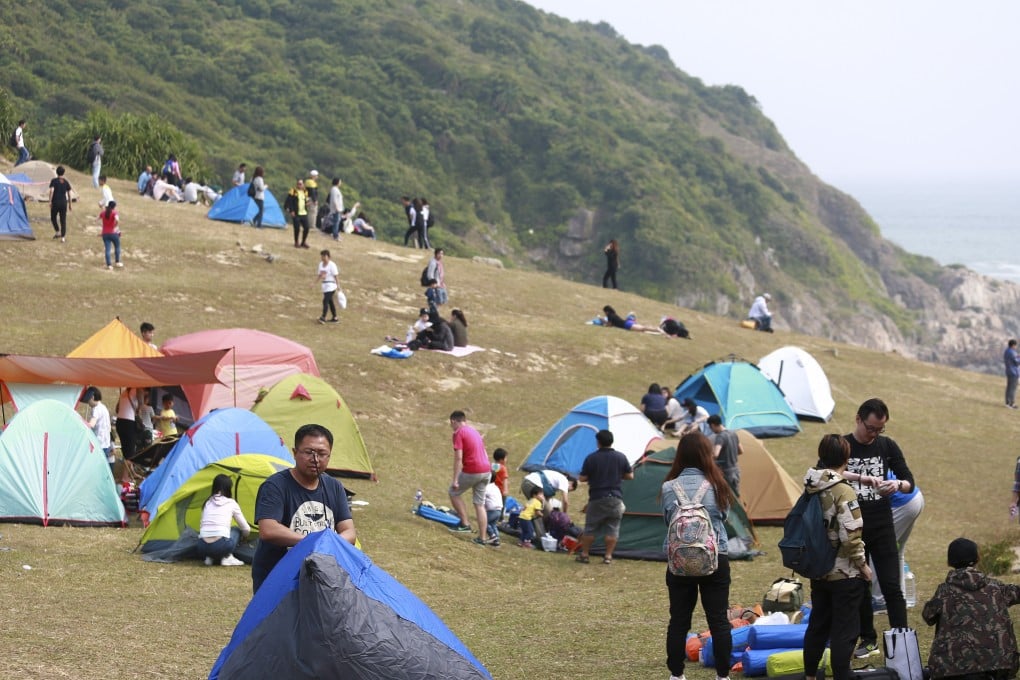Log cabins, zip lines and glamping among proposals for improving Hong Kong’s country parks, but campers may soon have to book to get a spot
- Agriculture, Fisheries and Conservation Department says it may also consider charging at campsites
- Suggestions all part of public consultation on how to enhance ‘recreation and educational potential’ of city’s green spaces

Campers may have to reserve a spot at public campsites in the future, according to new proposals aimed at enhancing Hong Kong’s country parks.
The Agriculture, Fisheries and Conservation Department said on Monday it would consider charging fees – mainly to deter no-shows – but conceded it would also have to step up management and monitoring.
The proposals were among those put forward in a three-month public consultation until May 15 to enhance the “recreation and education potential” of the parks.
“Campsites are first come, first served. We hope that through an advanced booking system, people won’t show up and not find a spot,” said AFCD assistant director Patrick Lai Chuen-chi.

Lai compared the system to booking sports facilities at government venues. “We still need to look at how it can be implemented practically.”